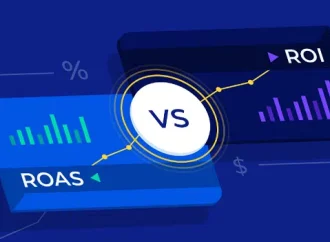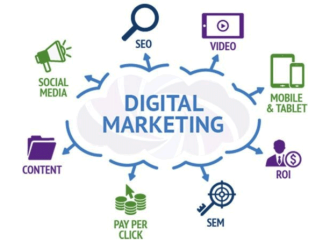In today’s digital age, online communication has become an integral part of our daily lives. But with the rise of social media and instant messaging platforms, there has also been a surge in harmful online behaviors such as cyberbullying and trolling. These behaviors not only affect individuals but can have a significant impact on society
In today’s digital age, online communication has become an integral part of our daily lives. But with the rise of social media and instant messaging platforms, there has also been a surge in harmful online behaviors such as cyberbullying and trolling. These behaviors not only affect individuals but can have a significant impact on society at large, creating division and perpetuating hate speech. In this blog post, we’ll dive deep into these problematic online behaviors and explore their impact on our digital communities. Join us as we examine how we can address these issues to create a safer and more inclusive online environment for all!
Cyberbullying
Cyberbullying is an act of bullying that takes place through the use of technology. It’s a form of aggression that often occurs online, and it can have serious effects on the person who’s being bullied. Cyberbullying can lead to anxiety, depression, and even suicide in some cases.
There are several types of cyberbullying:
Offline bullying is when someone verbally or physically attacks another person in a face-to-face setting. This type of bullying is typically more harmful than cyberbullying because it involves physical contact and can be more damaging to the victim’s reputation.
Online bullying is when someone insults, taunts, or terrorizes another person by using the internet. This type of bullying can be more harmful because it doesn’t have to involve any physical contact and can be done from a distance. Online bullies also have less accountability than bullies who attack their victims in person.
Cyberstalking is a type of online bullying that involves following and monitoring someone without their consent. Cyberstalking can take many forms, including sending unwanted emails, making harassing phone calls, or even sending threatening messages through social media sites. Cyberstalking is often considered worse than other types of online bullying because it’s invasive and difficult to stop.
There are several ways to prevent cyberbullying from happening:
Parents should talk to their children about online safety guidelines . These guidelines include not sharing
Trolling
There’s no doubt that trolling—intentionally provoking or antagonizing others online—is harmful. It can lead to cyberbullying, online harassment, and even physical violence. And while trolls are often thought of as a nuisance, their behavior has real consequences for society.
In recent years, trolling has become increasingly sophisticated. Trolling armies (made up of individuals who troll in unison) can cause large-scale disruption and chaos on the internet. For example, in October 2013, an Anonymous splinter group known as AntiSec launched a massive cyberattack against the hivemind of the extremist group LulzSec, which caused widespread panic and embarrassment among prominent members of the online community.
While trolling is often associated with juvenile behavior, it can also have serious consequences for adults. In November 2014, TrollStation—an infamous Twitter account that posted offensive content about celebrities and public figures—was revealed to be operated by a 24-year-old Australian man named Mark Meechan. Meechan was subsequently charged with making a terrorist threat after he filmed his dog giving Nazi salutes and saying “Sieg Heil” while watching Adolf Hitler videos.
Trolling is a serious problem that needs to be addressed head on. Education is key: Kids need to know that trolling isn’t funny and there are consequences for their actions. We also need to create better tools to deal with trolls and protect innocent people from being targeted unfairly.
The Impact of Online Behaviors on Society
Online behaviors can have a serious impact on society. Cyberbullying, trolling and other types of harmful online behaviors can have a negative impact on individuals, families and even businesses. Cyberbullying is the act of tormenting or harassing someone through electronic means, such as emails, social media posts, or chatrooms. Trolling is the act of deliberately posting inflammatory or antagonistic messages with the intent of provoking an emotional response from another user. Both cyberbullying and trolling can lead to feelings of anxiety, depression and other mental health issues. Additionally, cyberbullying and trolling can damage relationships and cause physical harm to people. In some cases, cyberbullying and trolling have led to suicides. The consequences of online behaviors are wide-ranging and far-reaching.
At its core, online behavior is about communication. When we communicate electronically, we are sharing information and ideas with others in a way that is often less formal than face-to-face communication. This opens up opportunities for us to be more direct in our exchanges and allows us to share more personal information. However, this increased transparency also makes it easier for others to hurt or harass us without having to face the physical consequences that come with traditional communication methods.
Cyberbullying is one example of how electronic communication can be harmful. Cyberbullies target their victims because they feel powerless in face-to-face interactions. They use electronic platforms to inflict pain on their targets without having to deal with the emotional fallout
Conclusion
As technology continues to evolve, so does the way in which we communicate and interact with one another. With easy access to a global network of people from all corners of the world, it is no surprise that online behavior has evolved into an increasingly harmful trend. From cyberbullying to trolling, there are countless examples of how digital communication can have devastating consequences on both individuals and society at large. In order to prevent these behaviors from becoming more common, it is essential that we understand their root causes and the ways in which they harm both victims and perpetrators.





















Leave a Comment
Your email address will not be published. Required fields are marked with *